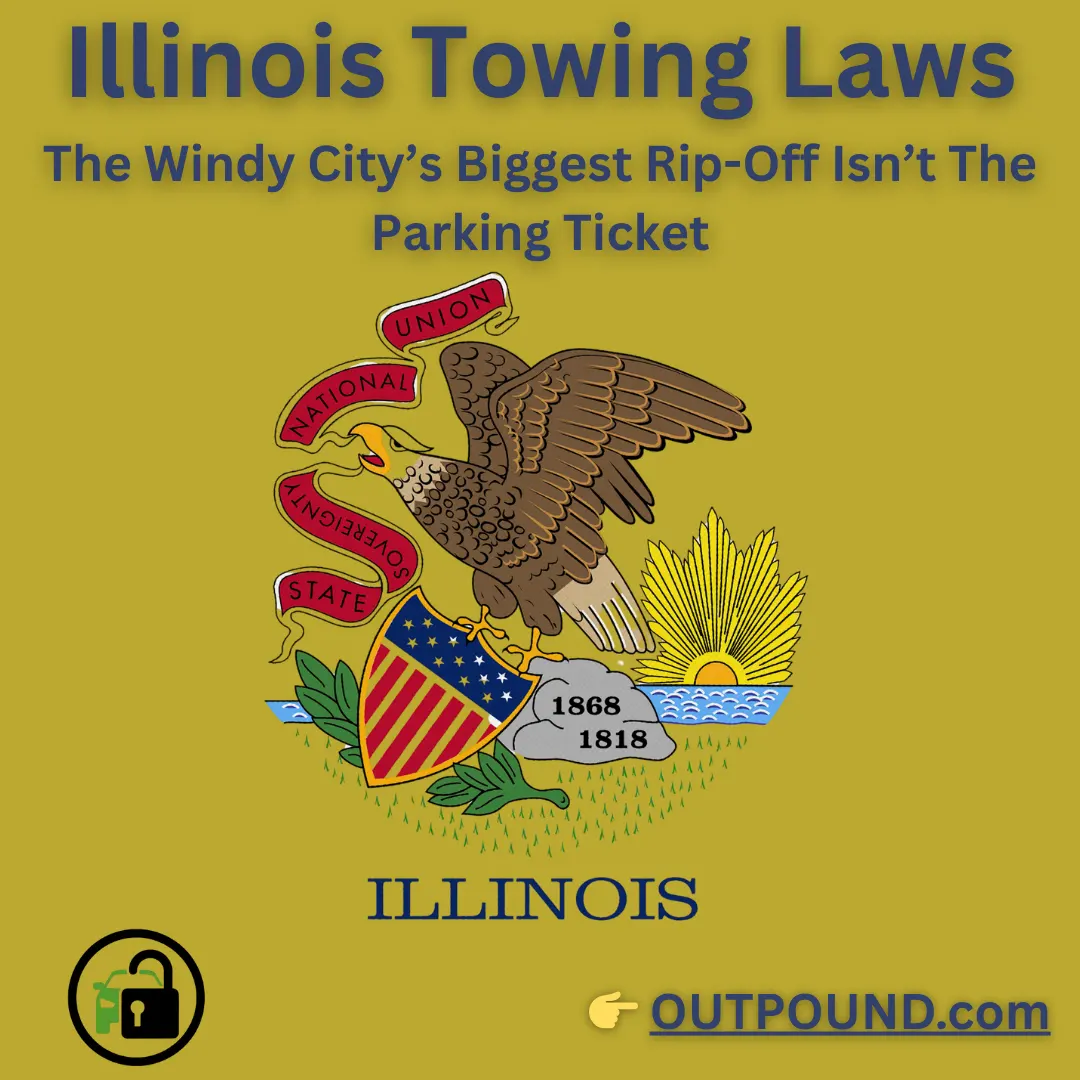The Windy City’s Biggest Rip-Off Isn’t The Parking Ticket

Windy Illinois, home of deep dish pizza, political scandals, and tow companies that make the mafia look subtle. From Chicago’s notorious parking traps to the suburbs’ HOA tow patrols, this state’s towing industry operates like a well-oiled extortion machine. Illinois loves its rules, but when it comes to towing, those rules tend to blow around like leaves in a Lake Michigan windstorm.
Who Can Tow?
Only registered, licensed towing operators can haul your car, but don’t let that fool you into thinking you’re protected. The Illinois Commerce Commission (ICC) regulates towers who work off police calls, while private property tows are a free-for-all under local ordinances. That means what’s “legal” in Naperville might be a violation in Peoria. The only constant? Tow companies know exactly how to play the system.
When Can They Tow?
If your vehicle blocks a driveway, fire lane, or sits on private property without permission, it’s fair game. Private property tows require a sign at every entrance stating the tow company’s name, phone number, and location. Sounds fair, right? Except half those signs are tiny, faded, or tucked behind bushes. Some lots post the required notice after they’ve had a few cars towed just to “set an example.” Chicago, of course, takes things further: park in the wrong zone for five minutes, and you’ll swear the tow truck was hiding around the corner waiting for you to blink.
Notification Requirements
Illinois law says towers must notify police immediately after towing a vehicle. If they don’t, the tow is illegal. But that’s assuming you ever find out who did the towing. Many yards give vague answers when you call, “We might have it,” “Come down and check,” or the ever popular “We can’t confirm without payment.” By the time the paperwork catches up, you’ve already forked over hundreds in fees just to get your license plate number back.
Fees and Storage
Illinois has one of the most confusing fee systems in the country. The ICC allows “reasonable” rates, which in tow language translates to “whatever we can get away with.” Hook-up fees hover around $125– $175, storage runs $25–$50 per day, and “release” or “administrative” fees add another $50–$100. In Chicago, daily storage rates can double after three days, and you’ll need exact cash to pay. Some yards don’t even let you view your car until you settle the bill, as if you’re being granted visitation rights instead of retrieving your own property.
Vehicle Recovery
To get your vehicle back, bring your ID, title or registration, and enough cash to make your wallet cry. Tow yards in Illinois are legally required to accept credit or debit cards, but many conveniently claim their “machine is down.” You can ask for an itemized invoice, though most look more like ransom notes. If you show up after hours, expect to pay a “gate fee” because apparently opening a gate now costs $75 in labor.
Legal Recourse
Illinois law gives you the right to file a complaint with the ICC for overcharging, failure to notify, or illegal towing. But don’t expect swift justice, these investigations move at the pace of Chicago traffic. Meanwhile, your car racks up daily storage charges until you pay or they auction it off as “abandoned.” Plenty of residents don’t even know they can dispute a tow until it’s too late.
The Pay Up Or Walk Home Bottom Line
Illinois is the land of red tape, and nowhere is that more obvious than its towing industry. Between inconsistent regulations, sky-high fees, and “lost paperwork” excuses, getting your car back can feel like filing your taxes blindfolded. But there’s one loophole that actually works: OUTPOUND.com. You can find out exactly where your car went, confirm who towed it, and prepare before you face the yard’s “cash only” circus. Because in Illinois, it’s not the wind that’ll blow you away, it’s the tow bill.

